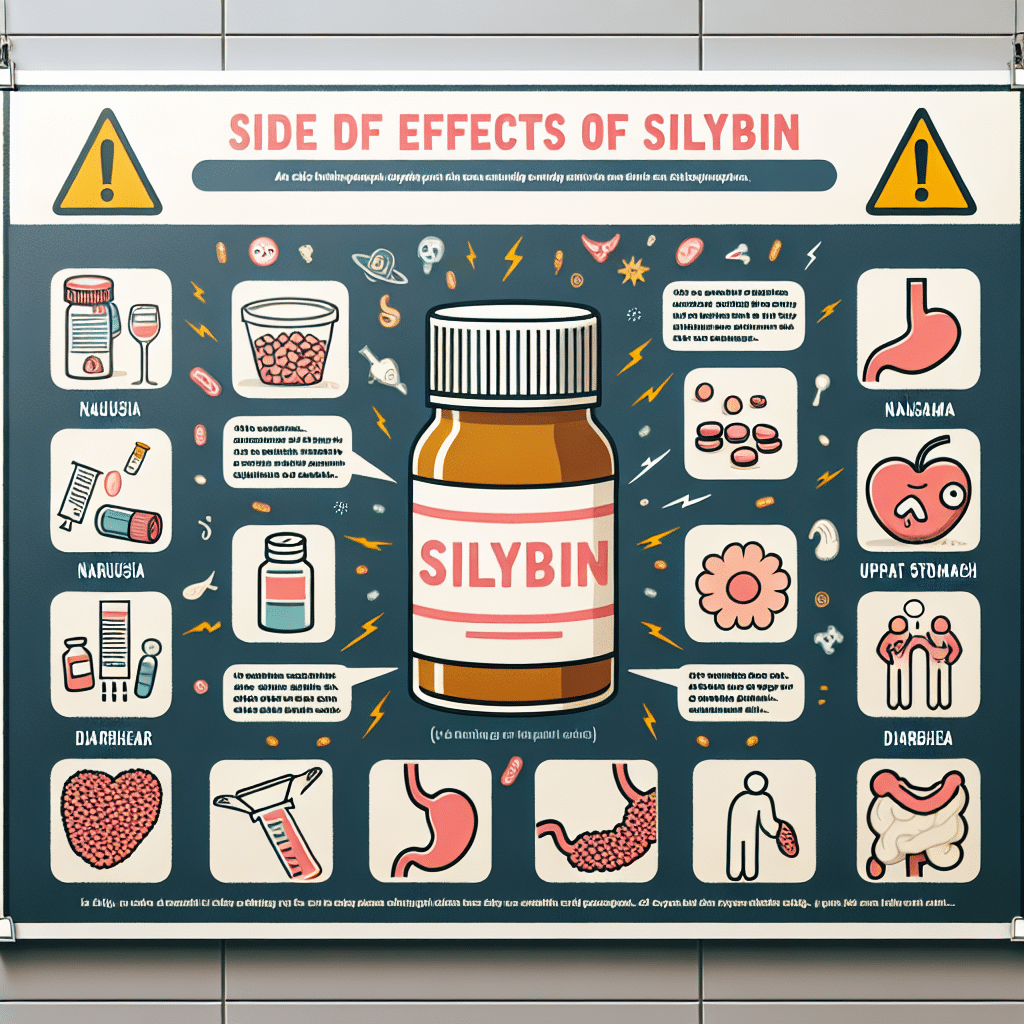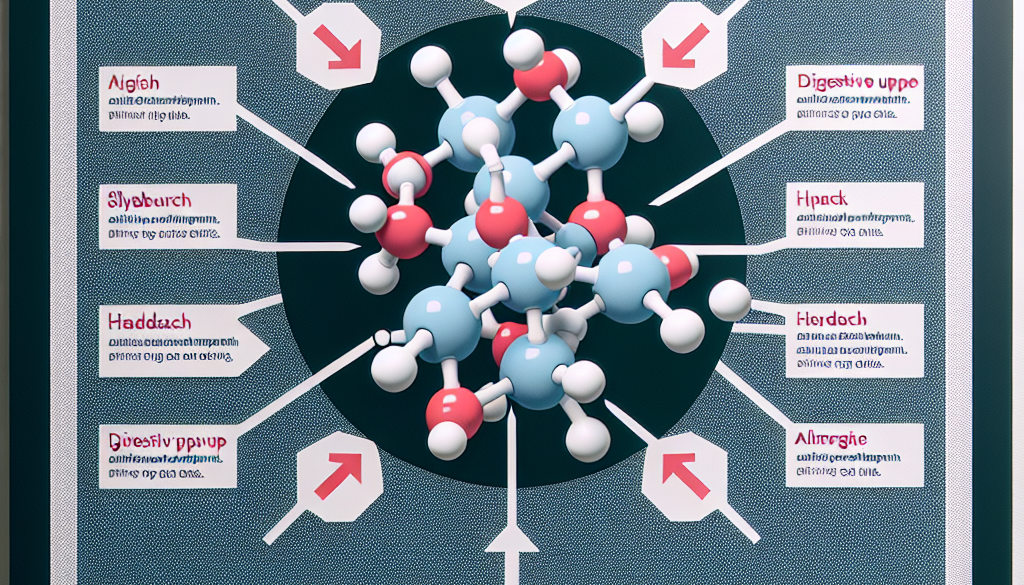Silybin Side Effects: What to Know
-
Table of Contents
- Silybin Side Effects: Essential Insights and Precautions
- Understanding Silybin and Its Therapeutic Uses
- Potential Side Effects of Silybin
- Research and Case Studies on Silybin Side Effects
- Precautions and Recommendations for Silybin Use
- Conclusion: Balancing Benefits and Side Effects
- Discover ETchem’s High-Quality Protein Products
Silybin Side Effects: Essential Insights and Precautions

Silybin, also known as silibinin, is the primary active constituent of silymarin, a standardized extract of the milk thistle plant (Silybum marianum). Renowned for its hepatoprotective properties, silybin has been used for centuries to treat liver disorders. Despite its therapeutic benefits, it is crucial to understand the potential side effects associated with silybin to ensure safe and effective use. This article delves into the side effects of silybin, supported by scientific research and clinical studies.
Understanding Silybin and Its Therapeutic Uses
Silybin is a flavonolignan compound that has garnered attention for its antioxidant, anti-inflammatory, and liver-protecting effects. It is commonly used to treat liver diseases such as cirrhosis, jaundice, hepatitis, and gallbladder disorders. Additionally, silybin has shown promise in protecting the liver from toxins, including alcohol and certain medications.
Potential Side Effects of Silybin
While silybin is generally considered safe when used appropriately, it is not without potential side effects. The following are some of the side effects that users should be aware of:
- Gastrointestinal Disturbances: Some individuals may experience gastrointestinal issues such as nausea, diarrhea, bloating, and upset stomach.
- Allergic Reactions: Although rare, allergic reactions to silybin or milk thistle can occur, manifesting as rash, hives, or severe itching.
- Interactions with Medications: Silybin can interact with certain medications, potentially altering their effects. This includes drugs metabolized by the liver’s cytochrome P450 enzyme system.
- Hypoglycemic Effects: Silybin may lower blood sugar levels, which can be a concern for individuals with diabetes or those taking antidiabetic medications.
- Hormonal Effects: Silybin can mimic the effects of estrogen, which may be problematic for individuals with hormone-sensitive conditions.
Research and Case Studies on Silybin Side Effects
Scientific research has provided valuable insights into the safety profile of silybin. Clinical studies have generally reported minimal side effects, with gastrointestinal disturbances being the most common. However, it is important to consider individual case studies and reports that highlight specific instances of adverse reactions.
For example, a study published in the “Journal of Hepatology” investigated the effects of silybin in patients with alcoholic liver disease. While the treatment was well-tolerated overall, some participants experienced mild gastrointestinal symptoms.
Another case study highlighted a potential interaction between silybin and the immunosuppressant tacrolimus, where silybin appeared to increase the blood levels of the medication, necessitating careful monitoring.
Precautions and Recommendations for Silybin Use
To minimize the risk of side effects, the following precautions are recommended:
- Consult with a healthcare provider before starting silybin, especially if you have pre-existing medical conditions or are taking other medications.
- Be aware of the signs of an allergic reaction and seek immediate medical attention if they occur.
- Monitor blood sugar levels if you have diabetes or are at risk of hypoglycemia.
- Individuals with hormone-sensitive conditions should use silybin with caution due to its estrogenic effects.
- Pregnant or breastfeeding women should avoid silybin unless advised by a healthcare professional.
Conclusion: Balancing Benefits and Side Effects
In conclusion, while silybin offers significant therapeutic benefits for liver health, it is essential to be aware of its potential side effects. By understanding these risks and taking appropriate precautions, individuals can safely incorporate silybin into their health regimen. Always consult with a healthcare provider to ensure that silybin is suitable for your specific health needs and circumstances.
Discover ETchem’s High-Quality Protein Products
If you’re looking for premium protein supplements to complement your health and wellness routine, consider exploring ETchem’s range of protein products. With a focus on quality and purity, ETchem offers a variety of collagen-based products that cater to diverse dietary and nutritional requirements.
About ETChem:
ETChem, a reputable Chinese Collagen factory manufacturer and supplier, is renowned for producing, stocking, exporting, and delivering the highest quality collagens. They include marine collagen, fish collagen, bovine collagen, chicken collagen, type I collagen, type II collagen and type III collagen etc. Their offerings, characterized by a neutral taste, instant solubility attributes, cater to a diverse range of industries. They serve nutraceutical, pharmaceutical, cosmeceutical, veterinary, as well as food and beverage finished product distributors, traders, and manufacturers across Europe, USA, Canada, Australia, Thailand, Japan, Korea, Brazil, and Chile, among others.
ETChem specialization includes exporting and delivering tailor-made collagen powder and finished collagen nutritional supplements. Their extensive product range covers sectors like Food and Beverage, Sports Nutrition, Weight Management, Dietary Supplements, Health and Wellness Products, ensuring comprehensive solutions to meet all your protein needs.
As a trusted company by leading global food and beverage brands and Fortune 500 companies, ETChem reinforces China’s reputation in the global arena. For more information or to sample their products, please contact them and email karen(at)et-chem.com today.




